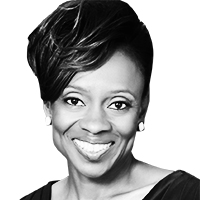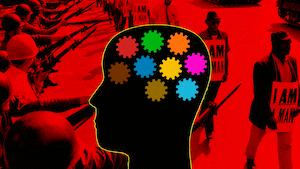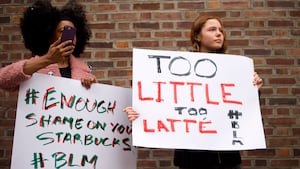When you subscribe to Airbnb, you are welcomed “to a community that connects global travelers with local hosts across the world.” As an alternative to a hotel, Airbnb allows a less expensive and more intimate experience for travelers and a chance for hosts to make money by opening their homes to strangers. In essence, it’s a public marketplace for private accommodations. And its core mission is to open the world to people, to let users know that “every community is a place where you can belong.”
The idea for the company originated with Brian Chesky and Joe Gebbia, who met at the Rhode Island School of Design. They both wound up in San Francisco in 2007, worrying about how to pay the rent on the small apartment they shared. One weekend, they rented out space in their apartment to techies in town for a conference when the city’s hotels were booked, and a new idea was born. It took a while to turn that weekend success into a viable business model. But once they worked out the kinks, the company’s growth was astronomical. Today, Airbnb is used by over 150 million people in 81,000 cities across 200 countries. There are over 5 million homes to choose from—660,000 in the United States alone. By 2018, the once-struggling start-up was worth $31 billion.
Subscribers post a photograph and profile, scroll through home-like places that are available to rent, then book and pay for their lodging online. But unlike booking a room at a hotel, the travelers aren’t the only ones doing the choosing. The host can pass on a booking request. So savvy subscribers take pains to sell themselves, with photographs and chatty testimonials that portray them in the best light.
But even a stellar résumé wasn’t always enough to secure a booking. Over time, complaints began trickling in from minorities who felt they’d been discriminated against by hosts who declined to accept booking requests from them. By 2016, that trickle had turned into a tsunami as black users took to Twitter, Facebook, and other social media sites to share their stories. Their experiences requesting accommodations—whether in small-town Idaho or cosmopolitan Philadelphia—were remarkably similar: They’d tried to book a place and were told by the owner that it wasn’t available. Some had white friends try to book the same place for the same time period, and it suddenly became available. Some users even tried posing as white, changing their photograph and name, and, when they did, found that they could easily book places that were unavailable to them as black.
Researchers at Harvard Business School began digging into the problem and demonstrated how pervasive it was. A rigorous field experiment found that blacks were 16 percent less likely to be accepted as guests than whites, and no manner of adjusting variables beyond race could explain that.
The researchers developed guest profiles by systematically varying the name of the guest so that it sounded either stereotypically white or black. Using those profiles, they contacted the hosts of approximately 6,400 Airbnb listings across five American cities. Racial disparities in bookings were present in every city, with every type of property (whether high-end or low) and every category of host (whether they rented often or occasionally; whether they were offering a room or an entire home). It didn’t matter if the neighborhood was racially diverse. It didn’t even matter if the host was a from minority; black hosts discriminated against black people too.
When Airbnb launched its own in-depth investigation, their researchers found evidence that of all the people making booking requests on the platform, requests from blacks were the least likely to be accepted. The company clearly had a race problem. After a sluggish initial response, Airbnb, under the direction of Brian Chesky, began taking aggressive action to curb it. He identified racial discrimination as “the greatest challenge we face as a company... It cuts to the core of who we are and the values that we stand for.”
Airbnb brought in Laura Murphy to help them address the challenge. Laura is an African-American civil rights attorney who has worked tirelessly to address racial inequality, including in the tourism industry. She spent three months meeting with dozens of stakeholder groups: employees, hosts, elected officials, regulatory agencies, tourism groups, civil rights organizations, and Airbnb users who’d been victims of discrimination.
As a lawyer, she first looked for a legal remedy. That meant figuring out how laws governing public accommodations might apply to this new hybrid situation. Hotels clearly could not deny someone a room based on race; current public accommodations laws forbid it. However, Airbnb is facilitating the advertisement of private accommodations—but on a public platform. How much control should people have in deciding who comes into their home once they have publicly advertised it to make money?
Laura suggested that Airbnb officials go beyond the federal legal requirement and determine for themselves what the rules of conduct should be on the site. She advised the company to strengthen its own nondiscrimination policy and require every user to sign a “community commitment” pact, spelled out in the sign-up process:
I agree to treat everyone in the Airbnb community— regardless of their race, religion, national origin, ethnicity, dis- ability, sex, gender identity, sexual orientation, or age—with respect, and without judgment or bias... Discrimination prevents hosts, guests, and their families from feeling included and welcomed, and we have no tolerance for it.
Users who aren’t willing to sign the commitment can no longer use the platform. And those who violate the anti-discrimination promise can be banned by Airbnb. The commitment provides the company with leverage to uphold core values and dictates terms of use in a manner that is consistent with a traditional civil rights mission. Just as old problems can migrate to new spaces, old agendas can be adapted to support new solutions.
But while policy remedies are a start, getting people to adhere to Airbnb’s value statement will only go so far. Even people whose values are appropriately aligned can fail to act in accordance with those values in ambiguous situations. They may not even be aware that they’re breaking the rules in those cases. After all, there are non-racial ways to explain away the rejection of a black applicant: They have young kids, and my home has too many breakable items. They’re on spring break, and I don’t want people partying all week long. It’s easy to tell yourself that you don’t see color, come up with a host of other justifications, and relieve yourself of any self-recrimination for your bias. Laura’s job was to focus the company’s managers on how these psychological maneuvers worked subconsciously.
The primary problem is not that “people on the platform say, ‘Look, I don’t want any African Americans,’” Laura said. “The biggest problem to me is the unconscious bias.” And it’s more difficult to police and remedy that than it is to root out blatant bigotry.
Given that the natural inclination in the tech industry is to remove friction, Airbnb moved toward solutions with this principle in mind. They decided to encourage people to use their “instant book” option, where listings could be arranged without the prior approval of the host. This option is similar to the process that hotels use in the public accommodations arena: if the space is available and the guest can pay, a room is booked without a need for a guest photograph, a profile, or any discussions about hobbies or the reason for their visit. And indeed, Airbnb’s analysis showed that when “instant book” was used, racial differences in guest acceptance rates evaporated.
But those results didn’t exactly warrant celebration. It turns out that only a tiny fraction of travelers—about 3 percent—opted for the “instant book” process. And blacks were more reluctant to use the option than other groups—perhaps because they wanted to avoid any ugly encounters that might arise from their hosts’ surprise. If discrimination has become the expectation—lurking in the shadows of every encounter—then it might be better for the host to know their race ahead of time. So an option designed to disguise race in pursuit of equality also came to signal just how deep the fear of rejection runs.
Another alternative was to add more friction rather than take it away. When hosts are provided with the previous reviews of guests by other hosts, for example, they are more likely to accept them into their homes, and the racial differences in acceptance rate begin to disappear. That’s likely because the practice allows hosts to replace vague racial stereotypes of how those guests might behave in their homes with concrete, relevant, factual information about how they have previously behaved. Indeed, decades of research on stereotyping highlight the power of individuating information to mitigate bias.
It’s too early in the process to tell whether these tweaks will be enough to wipe out the kind of overt discrimination that prompted complaints. But the company has created a team of engineers, researchers, data scientists, and designers whose sole purpose is to root out bias. They’ve also begun to route complaints of discrimination to investigative specialists and created an Open Doors program that promises to find a comfortable place to stay for anyone who is not able to book a listing because of discrimination.
Laura Murphy is gratified by the changes because she understands “the pain that race discrimination on that platform caused.” She knows the stakes are high. And while the platform and the tactics may be new, the problem is as old as America.
She grew up in Baltimore in the 1960s, the daughter of political activists who enlisted their children in civil rights campaigns. Yet her parents feared traveling the country without their Negro Motorist Green Book, a legendary travel guide that mapped out safe places for black travelers in almost every state, in an era when businesses—hotels, restaurants, taverns, gas stations, auto repair shops—barred their entry. The Green Book promised to provide the information blacks needed to “travel without embarrassment.”
In some respects, the Green Book served as a mid-20th century version of Airbnb for blacks who were shut out of conventional commercial lodging. It was a cultural response to a structural problem. Yet the problem of the 21st century involves managing integration, not segregation. Now that the laws have changed and spaces are being transformed, how do we all find, accommodate, and see one another?
From BIASED by Jennifer L. Eberhardt, Ph.D., published by Viking, an imprint of Penguin Publishing Group, a division of Penguin Random House LLC. Copyright (c) 2019 by Jennifer L. Eberhardt.








